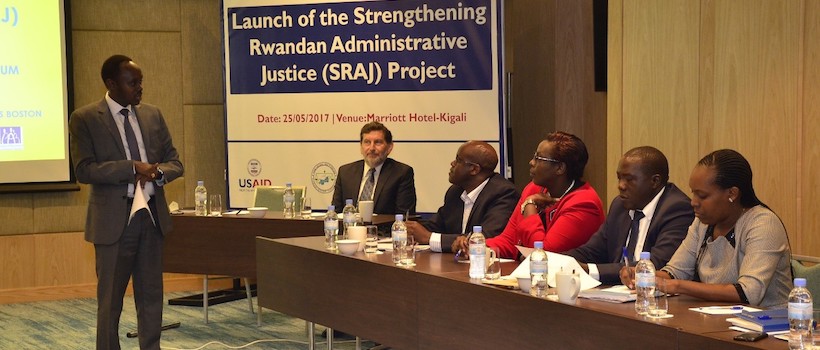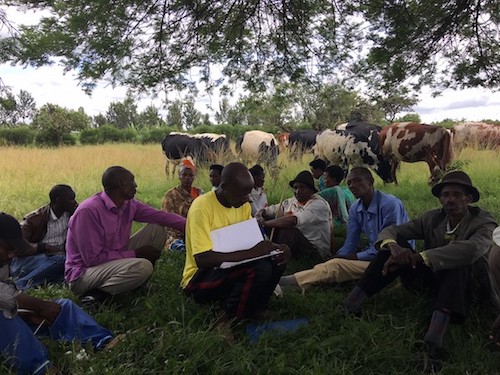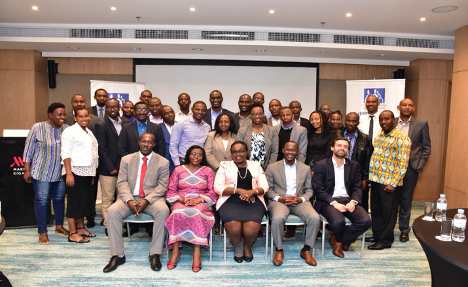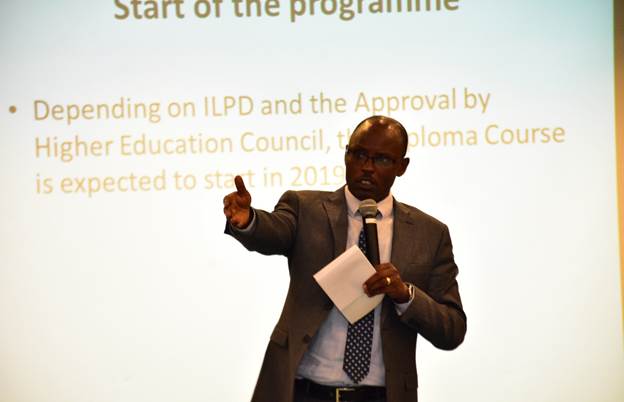- Home
- Center for Peace, Democracy & Development
- Key Areas
- Law Justice Reform
Law and Justice System Reform
Expanding Access, Strengthening Stakeholder Ties, Healing Communities

Our programs are grounded in law and justice system reform strengthening problem-solving relationships among diverse legal and other justice-related professionals. We bring together significant stakeholders, including those with disparate roles and disciplinary backgrounds, creating a foundation for improved system development and informed, targeted capacity building. Our work to facilitate strategic dialogue and trust-building among these players advances reform initiatives at all stages of the program cycle – from conceptualization, coalition-building, and legal drafting, to implementation and evaluation.
Led by Senior Faculty Fellow and Advisor: Malcolm Russell-Einhorn; CPDD has proven the value of this approach in different contexts such as restorative justice and administrative justice reform both in Boston and around the world. Projects and themes include:
Repairing Harm Prison Project
Rationale: Restorative justice practices encourage offenders to identify the underlying needs in their own lives that become the root causes for criminal behavior, take responsibility for the harm they cause, encourage empathy through humanizing victims, and desist from further criminal behavior.
Restorative justice brings victims’ voices back into the criminal justice arena by focusing on the harm that is caused by crime. Victim-offender dialogues provide the person who has been harmed with an opportunity to face the responsible party, tell them how the crime has affected their lives, and ask them to take responsibility for that harm.
Description: This Project works in Massachusetts prisons to help adult offenders address the deeper issues in their past that have led to criminality and violence, and which in turn may influence their decision to re-offend in the future.
Restorative practices provide the possibility of healing and rehabilitation through profound narrative group work that encourages introspection and self-exploration. The restorative justice prison curriculum is a journey from self-exploration and the identification of root causes of criminal behavior, to taking responsibility for harm, feeling compassion for victims and families, making amends where possible and finding ways to repair harm by living restoratively.
In collaboration with Concord Prison Outreach, the Project team works with incarcerated men at the Massachusetts Correctional Institute-Concord and the Northeastern Correctional Center. The Project offers two courses:
The Victim Impact course at the Concord medium facility is a twelve-session dialogue-based workshop founded on the principals and practices of restorative justice.
The Restorative Justice course at the minimum facility is a twenty-four week course broken into two twelve week phases.
Evaluation: Since 2016, CPDD has been developing a Project evaluation plan that is participatory and aligned methodologically with the tenets of restorative justice. A working group of men from one of the participating correctional institutions helped design the pilot evaluation. CPDD has begun collecting data with the first two cohorts of men who participated in Project courses. We are also working to develop a comprehensive, sustainable plan for ongoing monitoring and evaluation of the Project.
Restorative Justice Juvenile Mediation Project (RJUMP) and Juvenile Alternative Resolution (JAR) Program
Rationale: Restorative justice practices encourage offenders to identify the underlying needs in their own lives that become the root causes for criminal behavior, take responsibility for the harm they cause, encourage empathy through humanizing victims, and desist from further criminal behavior.
Restorative justice practices for juvenile offenders can change a young person’s behavior by addressing the underlying needs that lead them to commit crimes. When young people begin to engage in crime, it is often a reflection of something deeper: trauma, fear, childhood wounds, and lack of opportunity. Youth gangs are really a reflection of a profound need to belong to something. Restorative justice engages high risk youth in trauma-informed dialogues that help them become conscious of the roots of their own pain and encourages them to become change agents for themselves.
Description: The Restorative Justice Juvenile Mediation Project (RJUMP) provides Boston youth and families with restorative justice services. These services give victims a forum through which to speak with juvenile offenders about how crime has affected their lives and ask them to make amends.
The Juvenile Alternative Resolution (JAR) Program is a collaboration between RJUMP and the Suffolk County District Attorney’s Office (SCDAO). In partnership with Suffolk County community youth service organizations and victim/survivor community groups, RJUMP works to provide juvenile offenders with restorative justice services and mediation. JAR attempts to change juveniles' offending behavior by bringing them together in dialogue with victims while addressing the underlying needs of offending behavior. At the discretion of the SCDAO, once a juvenile completes the program, they are considered “diverted” and are not charged with the crime. They thus avoid the stigma of a criminal record.
Services: RJUMP services include: victim/offender dialogues, reparation agreement, restorative family conference, parent/child mediation, restorative youth dialogues, and youth mentorship.
Strengthening Rwandan Administrative Justice (SRAJ) Project
The Strengthening Rwandan Administrative Justice (SRAJ) Project - Twimakaze Ubutabera mu Miyoborere
Research Team: Malcolm Russell-Einhorn, Seth Karamage, Eben Weitzman, Jean Paul Mazimpaka (University of Rwanda Law School), Alexander Twahirwa, Rwanda Labour Rights Organization; Alfred Bizoza, High Lands Centre of Leadership for Development.
Themes: Administrative justice reform and access to justice; media outreach on administrative justice issues; enhancement of graduate and executive training on labor and procurement law; patterns of citizen willingness and ability to challenge administrative decisions based on education, public information, personal resources, and availability of legal aid.

Purpose: The Strengthening Rwandan Administrative Justice (SRAJ) Project, launched in early 2017, was a 3 1/2-year, USAID-supported initiative(2017-2020) aimed at improving the quality, consistency, legality, and transparency of decision-making by Rwandan district authorities in administrative cases that in aggregate involve thousands of citizens and businesses. The district level is where the overwhelming majority of administrative decisions are rendered under the country’s decentralized governance structure. By gathering detailed information about the both the legal framework governing administrative justice in the country (including gaps, ambiguities, and contradictions), as well as the functioning of administrative decision-making in practice (challenges involving capacity, management, data, and public awareness), the Project was able to generate evidence based policy recommendations that could inform key reform interventions—including improved training for public officials and better information dissemination to citizens about their rights in the administrative process.
By helping to improve administrative decision-making by front-line officials in Rwanda—advancing what could be termed ‘everyday’ justice—the Project sought to strengthen citizen voice in the administrative process while simultaneously creating more credible opportunities for first-instance dispute resolution. An underlying premise of the project was that without reasonably well articulated administrative procedures that are understood and utilized by public officials and citizens alike, the legal regime can neither be properly enforced nor complied with by civil servants, resulting in inconsistent rendering of decisions, a lack of transparency, and impermissible bureaucratic discretion and impunity. The Project has gained traction on these issues in part due to Rwanda’s self-consciousness about its international reputation for regulatory effectiveness and well as its need to enhance trust in government and bureaucratic legitimacy among its citizens.
Latest Developments: Thanks to the project’s field research on topics like labor regulation and land expropriation, the project was able to raise government and public awareness of the numerous challenges facing administrative justice in the country. At the same time, project-designed TV programs on labor regulation and administrative justice and public procurement and administrative justice, as well as the broadcasting of video dramas on labor dispute resolution, child labor protection, and land expropriation, have stimulated vibrant public discussion of these topics.
Subject Matter Focus: The Project had four subject matters as sectoral focal points for administrative justice interventions:
- Private labor regulation (terms and conditions of employment, including safety)
- Public procurement (procurem2017ent of goods, services, or construction by state bodies)
- Land expropriation (government seizure of land2017 for public use)
- Public employment (hiring, promotion, and dismissal of government employees)
These areas were selected based on the relatively large volume of such cases decided by district authorities, but also the visibility of such cases to the general public (and their familiarity with them). The project was implemented by the Center for Peace, Democracy and Development (CPDD) in the McCormack Graduate School of Policy and Global Studies at the University of Massachusetts Boston, Human Rights First Rwanda Association (HRFRA), the Institute of Policy Analysis and Research-Rwanda (IPAR-Rwanda) and HighLands Centre of Leadership for Development (L4D). Key stakeholders included the Ministry of Justice (MINIJUST), the Ministry of Local Government (MINALOC), the Ministry of Public Service and Labor (MIFOTRA) and the Institute for Legal Practice and Development (ILPD).
Rationale: Administrative justice involves a government’s use and observance of proper legal and procedural rules in rendering decisions in individual cases affecting the rights of citizens and businesses. Because these decisions may number in the many thousands in the aggregate, they dwarf the number of civil and criminal cases decided in the courts. These decisions also tangibly affect the public’s perception of the government’s fidelity to the rule of law and fundamental notions of ‘everyday’ justice. When administrative decisions are improperly made or procedures not followed, the public may not only be frustrated and feel poorly treated, but may flood district officials and the Ombudsman’s Office with complaints. Still other citizens and businesses may bring appeals to the courts, consuming state resources and occupying the time of state attorneys in cases

that otherwise could have been decided correctly at the district level in the first place. Stated otherwise, we know that the procedural dimension of justice systems generally matters greatly to citizens. When citizens have a basic understanding of their rights and how the decision-making process works, when they are treated with courtesy and respect, given an opportunity to describe their situation and present evidence on their behalf, and provided with a written decision with supporting reasons, they are likely to view an administrative process as fundamentally fair – and less likely to feel that they have to appeal to the courts, politicians, or other forums for redress. Ultimately, a procedurally sound system of administrative justice enhances public trust in state institutions, as well as investor confidence in regulatory governance.
Project Phases: The SRAJ's Project's work consisted of three phases:
- Legal and Policy Framework and Contextual Analysis Report. In the first phase, the Project carefully documented the operable legal and policy framework governing administrative decision-making by district authorities in the four subject areas. The idea was to describe how the law and applicable procedures should be followed (so that deviations from these norms could be identified), while also identifying gaps, ambiguities, and contradictions in the law that posed a problem for local officials, central authorities, and the courts. Administrative case statistics (including appeals to the courts and complaints filed with the Ombudsman’s Office) were also been analyzed. All of this information was shared with Government of Rwanda (GoR) stakeholders for their input.
- Analysis of Local Administrative Decision-making in Practice. In the second phase, the Project engaged in intensive data-collection at the district level regarding (a) local decisional procedures and practices; (b) the quality and legality of decisions being rendered; (c) interviews with district officials regarding their views on decision-making activities, including challenges and opportunities for improvements in capacity-building and in legal/procedural reforms; and most important, (d) a survey of 600 citizens with recent cases in the four subject areas regarding their experiences in the administrative process. The detailed reports on all of the field research were publicly disseminated and shared with a variety of governmental and non-governmental stakeholders. These reports include those covering findings and recommendations on labor regulation, public procurement, land expropriation, and public employment, as well as a consolidated report with statistical annexes for all four subject areas (Labor, Procurement, Land, Employment). A Summary of Key Findings and Recommendations was also produced for wider distribution. This information will continue to be discussed by these stakeholders in facilitated roundtables that can generate tangible legal, policy, and capacity-building improvements.
-
Capacity-Building/Training Activities, Media Outreach, and Legal/Regulatory Reforms. Based on the above findings and recommendations, the project helped support a number of different evidence-based reform activities that included (a) conducting a mass media public education effort through radio and TV talk shows and the airing of accessible issue-oriented dramatization videos, including those on the role of the labor inspector in dispute resolution, child labor protection, and land expropriation(These video dramatizations and numerous TV and community radio broadcasts featuring panel discussions on administrative justice topics grew out of a workshop on CSO-media collaboration around the topic of administrative justice);(b) engaging in dialogue with public officials about possible relevant legal and procedural reforms; and (c) developing and executing training and other capacity-building activities for district decision-makers and legal advisers (so as to improve the quality and consistency of decision-making and learn from prior experience and court decisions). In particular, the project was pivotal in the design and adoption of two new graduate diploma courses in labor regulation and public procurement to be offered at ILPD, as well as the design of new executive (short) training courses in labor and employment law (also to be offered at ILPD on a sustainable basis), including those on labor mediation, labor inspections, occupational safety and health, international labor standards, and social dialogue.

Key Accomplishments: Following completion of the diagnostic Phase I and Phase II work,(which entailed mapping the applicable legal frameworks in the four focal areas of decision-making and sharing key findings and conclusions with government and CSO stakeholders, especially quantitative and qualitative data on administrative justice challenges at the district level from the vantage point of both citizens and public officials), the major accomplishments of the project focused on tangible delivery of public dialogue and mass media outreach activities (TV and radio talk shows and citizen call-in segments), as well as planning for new training courses for practicing lawyers in procurement and labor law at ILPD. The project also developed a range of short courses for district leaders and legal advisers that were informed by the Phase II findings.
Also during the Phase III work, as part of the media outreach activities, the project produced a video dramatization of good labor dispute resolution practices that was shown to 500 private sector participants at a Ministry of Public Service and Labor (MIFOTRA) Employer Compliance Forum in Eastern Province. The video won praise from both the Minister of Public Service and the attendees. This video also complemented some of the TV and radio shows on challenges in the promotion of administrative justice in labor dispute resolution. All of the TV and radio shows (including those on public procurement, and land expropriation) featured panel discussions by experts as well as citizen call-in segments. Towards the end of the project, its work and research findings were featured in widely circulated newspaper stories addressing reform needs in land expropriation (Click Here for News Story), public procurement (Click for News Stories Here, Here & Here) and labor regulation (Click Here for News Story).
Read more about Strengthening Rwandan Administrative Justice (SRAJ) Project »MASSACHUSETTS Veterans' Court Consortium
As part of the Veterans' Court Consortium, CPDD worked in cooperation with the William Joiner Institute for the Study of War and Social Consequences at UMass Boston on an initiative to support the expansion and improvement of veterans' court sessions in Massachusetts. As a result, a Veterans Treatment Court was implemented in the Central Division of the Boston Municipal Court in January 2014. Veterans Treatment Courts provide judges the option to redirect military veterans out of the traditional criminal justice system into rigorous alternative sessions characterized by access to medical services, counseling, peer-mentorship, training and close supervision by the court. The aim of the project is to reduce recidivism rates among military veterans with service-related mental or emotional afflictions; reduce the Commonwealth’s costs in administering the criminal justice system; and demonstrate the efficacy of therapeutic and restorative justice solutions. As a member of the ongoing Consortium, CPDD contributes to program monitoring and evaluation of the impact of veterans' court programs that are implemented in Massachusetts. Read more about the Veterans' Court Consortium and Veterans Treatment Courts here.
CHINA Enhanced Judicial Education Program
CPDD completed a four-year Enhanced Judicial Education Program designed to strengthen the Chinese judiciary. The program was funded by USAID for a total of U.S. $2.6 million, and constituted a series of six U.S. State Department cultural and educational exchange programs. These programs engaged members of the Chinese judiciary on issues ranging from judicial management to evidence collection. In many ways unprecedented, the program has had large and continuing impacts on the Chinese judiciary and legal systems, particularly in the areas of evidence and discovery, mediation and alternative dispute resolution, and court/community relations. With respect to the latter area, the program succeeded in establishing important pilot projects in domestic violence and strengthening the role of citizen assessors in trials. Whenever possible, CPDD continues to support alumni of the program in China with additional partnership opportunities and assistance.
SENEGAL Law and Environmental Programs Assistance
In Senegal, USAID supported CDD’s work with the Universite Gaston Berger de Saint-Louis to strengthen the university's law and environment programs and develop community outreach and community service programs.
RUSSIA Intellectual Property Rights Protection
CDD received three separate U.S. State Department grants to work in Russia on various legal reform projects involving intellectual property rights protection. These projects involved judicial training, substantive policy changes, and the development of intellectual property rights “awareness” among the public and media.